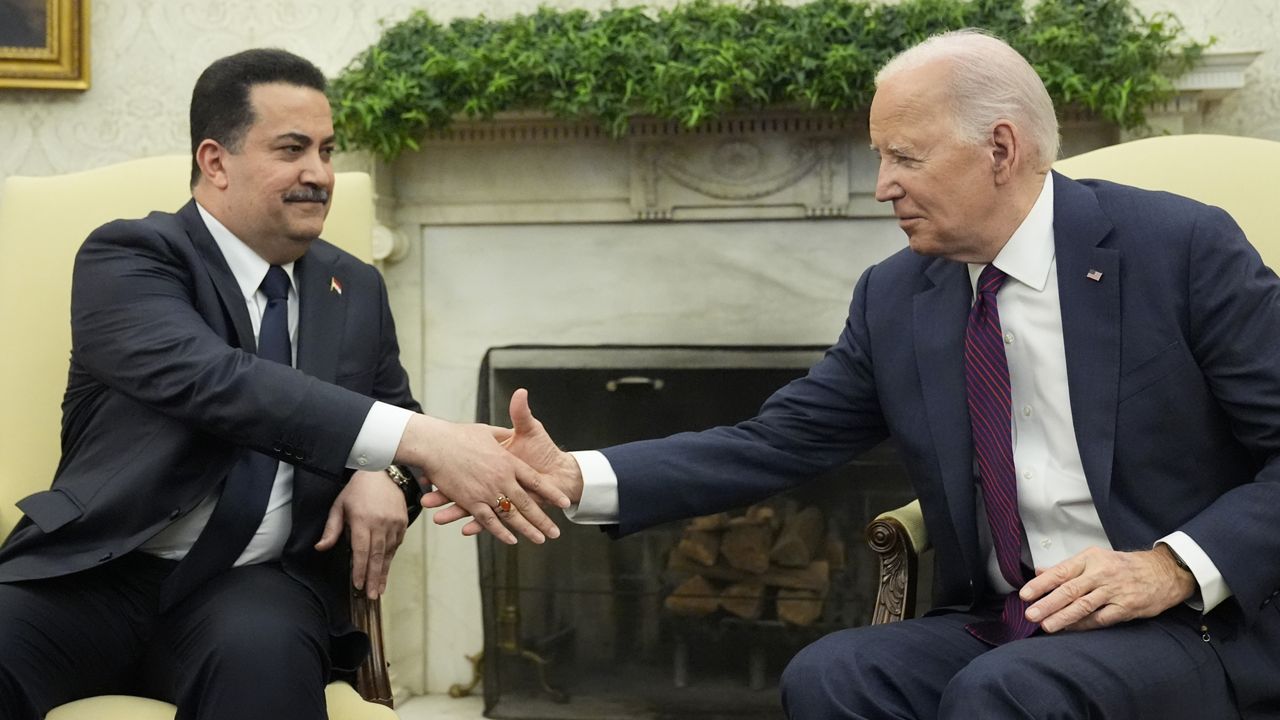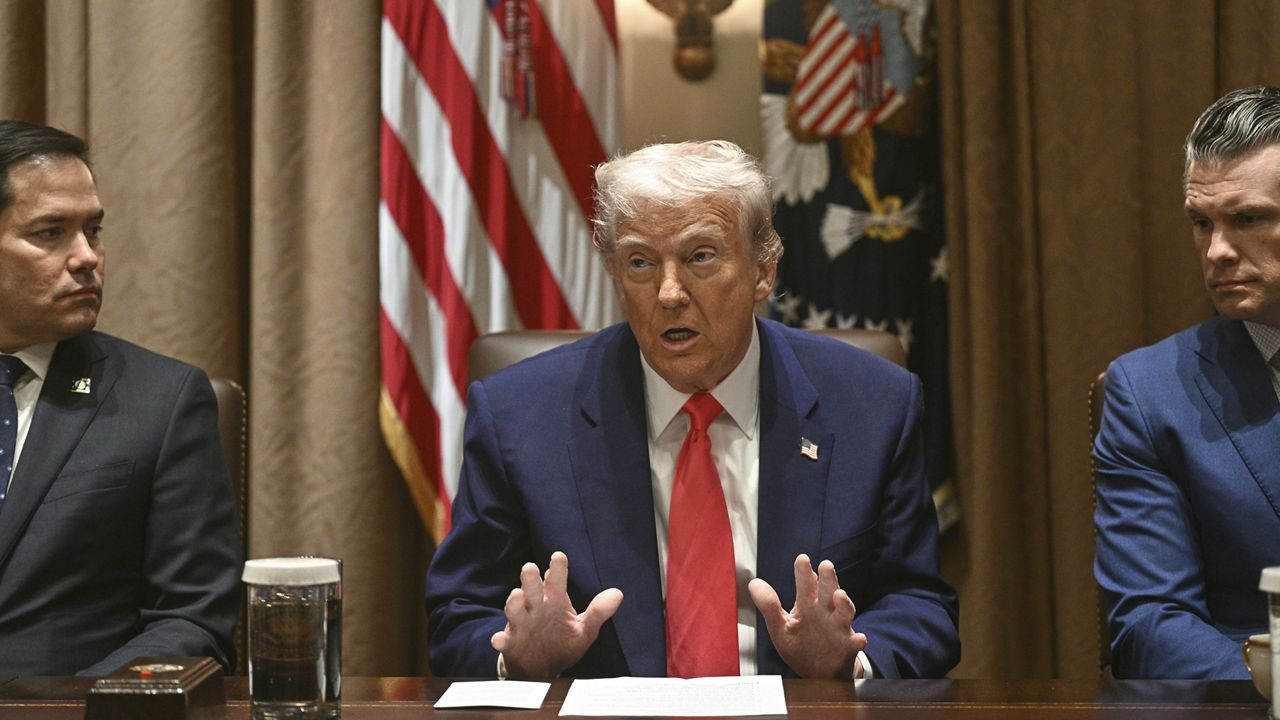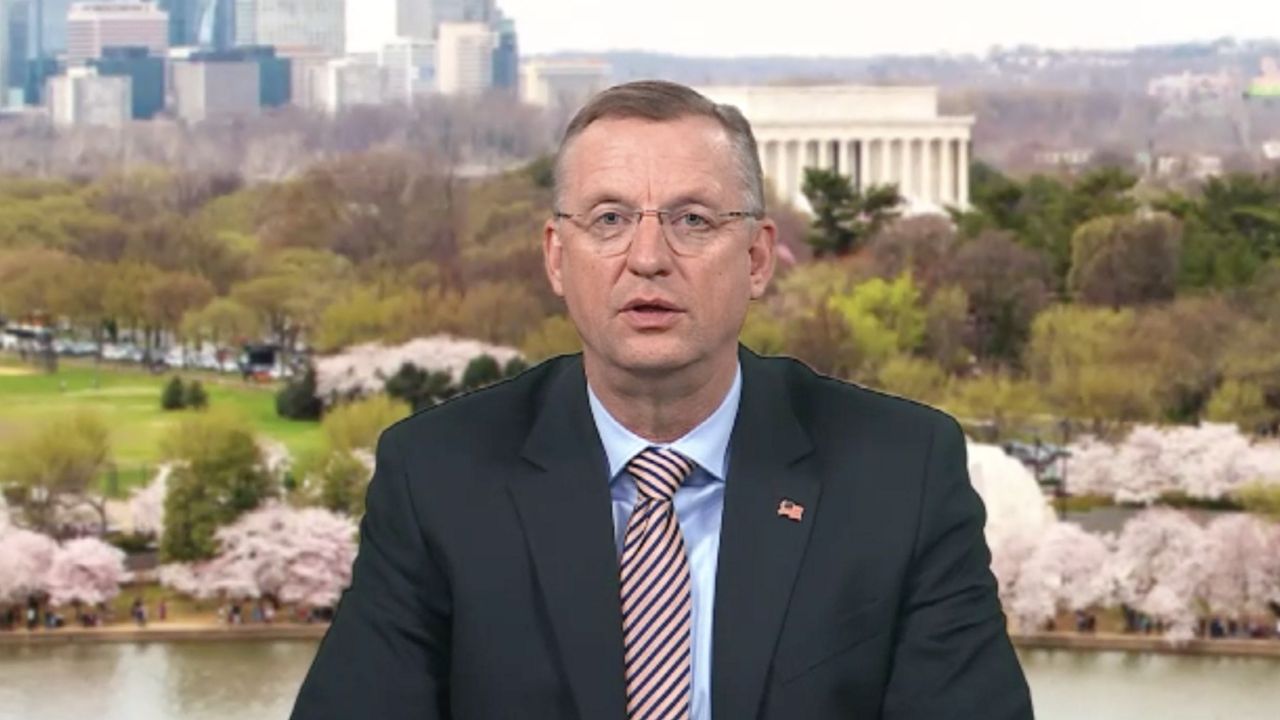President Joe Biden on Monday huddled separately in the Oval Office with the prime ministers of Iraq and the Czech Republic as wars forge on in both of the countries’ neighborhoods.
Both of the conflicts could reach crucial points in the weeks ahead as Israel weighs a response to attacks by Iran over the weekend that have inflamed fears of a wider war and the GOP-controlled House’s decision to thus far sit on Biden’s request for additional aid to Ukraine could soon come to a head.
Biden on Monday first sat down with Iraqi Prime Minister Mohammed Shia’a al-Sudani, with the conversation set to hit issues ranging from economic development to energy independence, according to the White House.
“The partnership between the United States and Iraq is critical,” Biden said during brief remarks at the top of Monday’s Oval Office meeting, later adding it is “pivotal for our nations, for the Middle East and, I believe, for the world.”
The Iraqi leader on Monday told Biden that the relationship between the two countries was at an “important juncture.”
The pair are also expected to discuss the potentially more delicate subject of the future of the two-decade-old U.S. military presence in Iraq, just months after the two countries launched formal talks on the topic.
U.S. troops returned to the country in 2014 with the aim of helping Baghdad defeat the Islamic State. About 2,000 American troops remain. The U.S. has emphasized that America’s presence in the country is “at the invitation of the Iraqi government,” but Iraqi officials, including al-Sudani in January, have questioned the continued presence and occasionally called for the withdrawal of U.S. troops.
“The war against ISIS, Daesh formed the foundation of our relations over the course of the past decade,” the Iraqi leader said on Monday. “Mr. President, we have fought together and we have achieved victory together.”
The tensions boiling in the region amid the war in the Gaza Strip has raised the stakes of that discussion, as Iranian-backed militias use Iraq, along with other countries in the region such as Yemen and Syria, to initiate attacks. The country also served as one of the launching sites for Iran’s drone and missile strikes on Israel on Saturday, according to U.S. Defense Secretary Lloyd Austin.
“We’re also committed to the security of our personnel and partners in the region, including Iraq,” Biden said Monday.
The Iraqi leader, according to The Associated Press, was already en route to Washington when Saturday’s attacks were launched.
Amid the war, the U.S. has also carried out strikes against facilities in Iraq used by Iranian proxies attacking American interests.
Washington and Baghdad are navigating a more nuanced relationship. Iranian-aligned factions helped bring al-Sudani to power, and Tehran has influence in the country.
The Iraqi prime minister on Monday also made clear he has what he called “divergent” views from Biden on the war in Gaza. Biden has faced pressure from some at home and on the world stage over his support of Israel amid a rising civilian death toll and worsening humanitarian crisis in the Palestinian territory.
“Mr. President, I came today carrying the concerns of my people, who aspire for services for prosperity,” al-Sudani said. “And -- but that -- that does not mean that we forget about our humanitarian responsibility, about what's happening in the region.”
Biden on Monday reiterated that he was “committed” to a cease-fire that would bring home hostages taken by Hamas during its Oct. 7 attack on Israel that left about 1,200 dead.
Later Monday, Biden hosted Czech Prime Minister Petr Fiala in the Oval Office, where Russia’s invasion of Ukraine and the NATO alliance are slated to be top of mind. And it comes as the GOP-controlled House could be forced to make a decision this week on how to approach Biden’s request for billions in additional aid to Ukraine.
The Senate-passed national security supplemental bill, which includes Biden’s request for billions in assistance to Israel, Ukraine and Indo-Pacific allies in one package, has sat motionless in the House for weeks as some in the GOP push back on any additional U.S. aid to Ukraine.
But Saturday’s attack on Israel has increased the urgency among some House Republicans to provide more assistance to Israel as soon as possible, leaving Speaker Mike Johnson, R-La., staring down a sticky decision on whether Ukraine aid would be included in any Israel assistance bill the House may take up.
“I want to thank you for helping, Mr. prime minister, for helping us secure nearly one million rounds of ammunition for Ukraine,” Biden told Fiala on Monday. “And I’m committed – we’re committed – to doing our part.”
Biden added Congress “has to pass” his national security supplemental request.
“They have to do it now,” Biden said, “now.”
Biden in recent months has sought to assure European leaders that the U.S. would not back away from supporting Ukraine as the war stretches into its third year.
The Czech Republic is also marking a quarter century in the NATO alliance this year, according to the White House.
“25 years ago, almost to the day I was standing on the Senate floor arguing for the admission of Czechoslovakia at the time, Czech Republic, into NATO,” Biden said. “25 years, I was a pretty smart guy. Best decision we made.”








